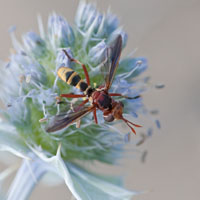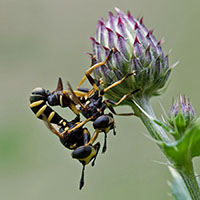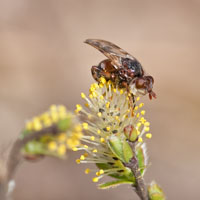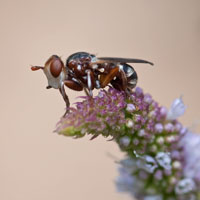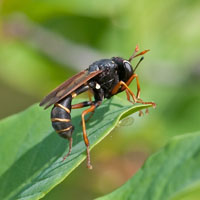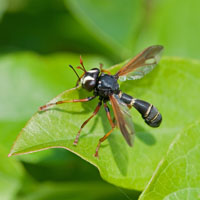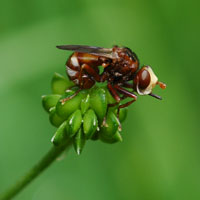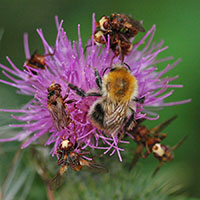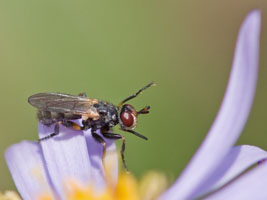|
Conopidae, or thick-headed flies, are flies whose
larvae are parasitoids of mostly wasps and bees. Adult flies can often be observed drinking nectar on flowers.
However, using flowers as a look-out, the females may also launch themselves onto suitable hosts.
A structure at the belly-side of the conopid fly ̶ the can-opener-like theca ̶ allows the female
to hold the body of the host and puncture the membrane between the tergites to deposit a single egg. The larva
develops in the abdomen of the host, which dies once the conopid larva pupates. Hosts of few conopids are known,
but they appear not to be very host-specific.
|

